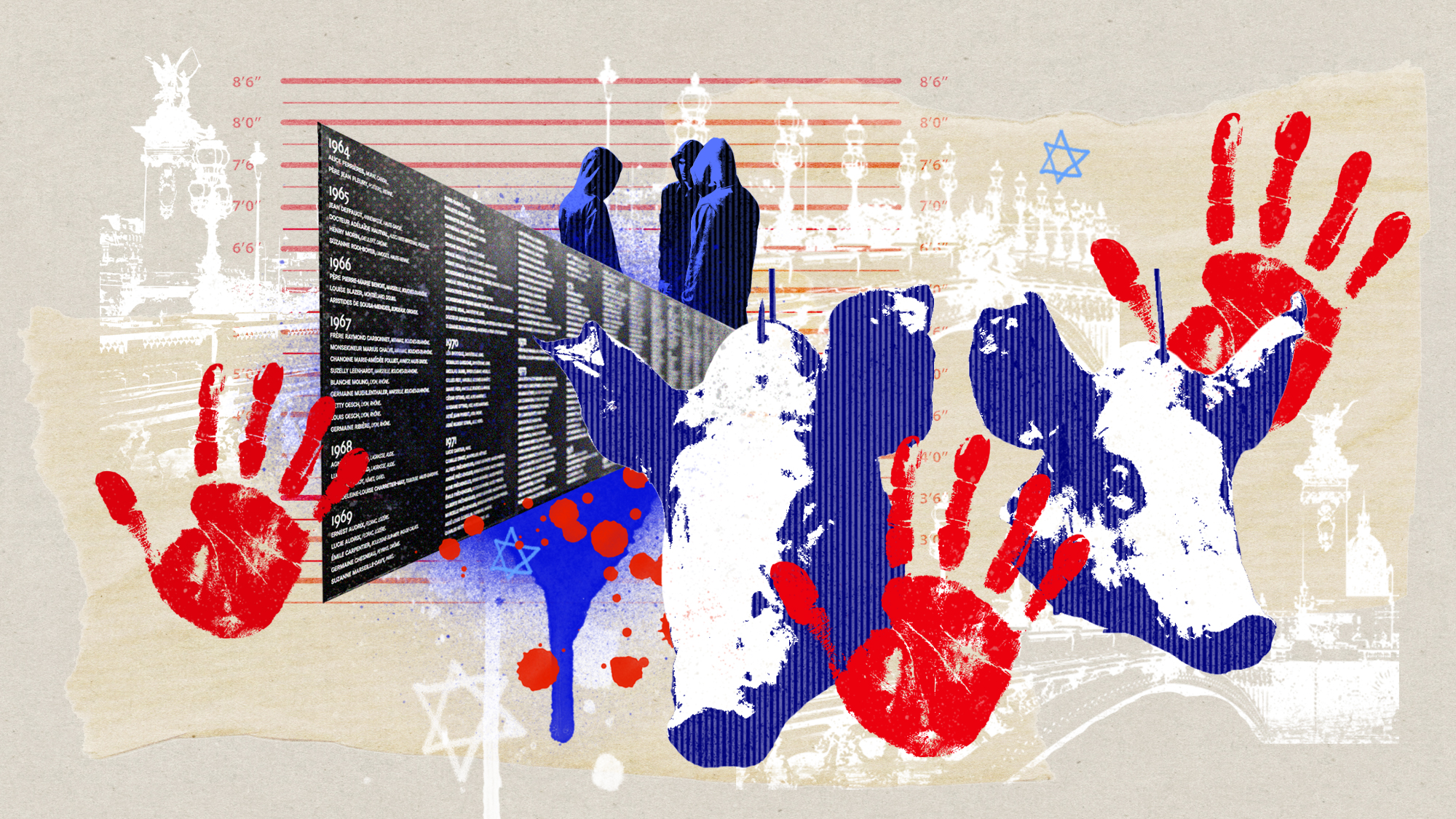France’s ‘red hands’ trial highlights alleged Russian disruption operations
Attacks on religious and cultural institutions around France have authorities worried about Moscow’s effort to sow chaos in one of Europe’s political centers


A free daily email with the biggest news stories of the day – and the best features from TheWeek.com
You are now subscribed
Your newsletter sign-up was successful
For the past two years, France has been rocked by acts of vandalism and destruction at religious and cultural locations in and around Paris. Decapitated pig’s heads were left at area mosques; provocatively labeled coffins for the “French soldiers of Ukraine” were displayed around the Eiffel Tower; and in a first-of-its-kind trial this week, four Bulgarians stand accused of defacing a Holocaust memorial with red handprints in 2024. The latter case has drawn international attention due to allegations from French authorities that it and similar acts are the work of covert Russian agents hoping to sow discord in a Western power during a crucial phase of the Russo-Ukrainian war.
A reflection of 'geopolitical reality'
This week’s trial is the “very first” in a “series of legal cases” dealing with the past two years that authorities have successfully linked to “foreign interference operations,” said French security researcher Clement Renault to Agence France-Presse. Court filings in the case include “intelligence reports” that “attribute the ‘red hands’ operation” to Russia’s federal security agency, Renault said. The “red hands” case is a “rare window” into an “escalating campaign” by Russia to “destabilize France through covert influence and psychological operations,” said Politico. As a nation “with global weight but domestic vulnerabilities” making it “especially susceptible” to interference, France “presents both a prime target and a weak flank.”
The allegation of Russian manipulation operations “reflects a geopolitical reality,” said Kevin Limonier, the deputy director of Paris’ GEODE geopolitical research center, to Politico. France is the EU’s sole nuclear power and an economic powerhouse opposed to the ongoing invasion of Ukraine, so accordingly, “Russia considers France to be a serious adversary.”
The Week
Escape your echo chamber. Get the facts behind the news, plus analysis from multiple perspectives.

Sign up for The Week's Free Newsletters
From our morning news briefing to a weekly Good News Newsletter, get the best of The Week delivered directly to your inbox.
From our morning news briefing to a weekly Good News Newsletter, get the best of The Week delivered directly to your inbox.
This trial comes just months after British authorities sentenced six Bulgarians to up to a decade in prison for “belonging to a Russian espionage cell,” Le Monde said. Those convicted were “motivated by money” and operated “across borders in the U.K., Austria, Spain, Germany and Montenegro.” Three of the four defendants on trial this week in France were “extradited from Croatia and Bulgaria,” while a fourth is being tried in absentia on charges of “complicity for having booked accommodation and transport for the others,” said France 24.
Part of a broader destabilization campaign
For the past two years, the Paris prosecutors office has counted “nine such cases” of vandalism and destruction in connection with alleged Russian interference operations, said France 24 reporter Antonia Kerrigan on air this week. For instance, graffiti depicting the Star of David in the weeks immediately following the October 7 Hamas attack on Israel, when the “Jewish community felt particularly vulnerable,” was carried out by two Moldovan men who claimed to be “acting on orders,” said Kerrigan. A similarly targeted attack on Paris’ Javel mosque in September was likewise connected to a “group of Serbian nationals” who were suspected in a series of antisemitic incidents across the city, Politico said. “This modus operandi is identifiable,” Kerrigan said, citing suspects who are “often foreign actors, very briefly in France, often from Eastern Europe, placing suspicion firmly at Russia's door.”
These influence operations are part of a “broader strategy” by Russia, said a French intelligence report cited by prosecutors. The goal, the report said, is “dividing French public opinion or fueling internal tensions by using ‘proxies,’” which it clarifies as people who don’t work directly for foreign intelligence services but are “paid by them for ad hoc tasks via intermediaries.”
A free daily email with the biggest news stories of the day – and the best features from TheWeek.com
Rafi Schwartz has worked as a politics writer at The Week since 2022, where he covers elections, Congress and the White House. He was previously a contributing writer with Mic focusing largely on politics, a senior writer with Splinter News, a staff writer for Fusion's news lab, and the managing editor of Heeb Magazine, a Jewish life and culture publication. Rafi's work has appeared in Rolling Stone, GOOD and The Forward, among others.
